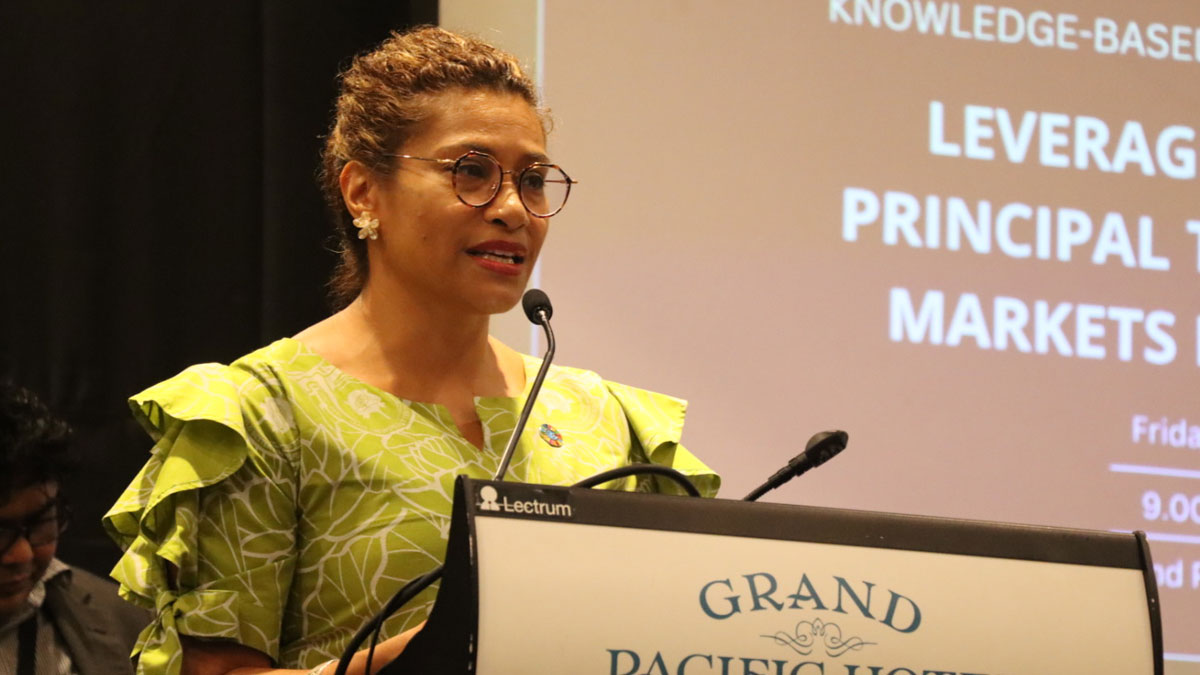
The cost of energy echoes throughout the economy affecting production costs, consumer costs, consumer prices, and the availability of basic needs.
Minister for Women, Children and Social Protection, Lynda Tabuya stated this at the Knowledge Based Economy lecture at the Grand Pacific Hotel.
Tabuya says strategic macro-economic policies can mitigate these effects by promoting energy efficiency and transitioning towards renewable energy sources thereby reducing the dependency on fossil fuels and stabilising energy prices.
She says adapting our energy market is essential in building a strong economy and an inclusive society.
The Minister says with sound economic insights, practical regulations and a shared determination, we can transform our energy markets into pillars of a sustainable and inclusive growth story.
She says energy markets have a direct impact on the cost of living, availability of essential services and the potential for job creation.
Tabuya says the adaptation of energy markets for the future and their direct implications on macro-economic policies and regulations are in line with the government’s goal of a sustainable and economically viable future for Fiji.
She says we are at the crucial intersection of knowledge based economy and the adaptation of the energy markets for our collective future.
Tabuya says energy markets are essential in powering industries, lighting our homes and supporting our daily lives.
She says she is deeply conscious of the profound effect that economic principles, energy markets and regulations have on our society.
Tabuya says the traditional frameworks governing these markets are now facing big challenges due to the climate crisis, technological changes and the global shift towards sustainability.
The Minister says for instance the adverse effects of the climate crisis costs the global economy around US$1.2 trillion annually urging an immediate transition towards sustainable energy practices.
She says energy markets play a vital role in macro-economic policies and this significantly affects our inflation rates, trade balances, and overall economic stability.
Tabuya says for example a 10 percent rise in oil prices can cause a 0.2 percent drop in economic growth world wide.
Tabuya adds that gender equality should be at the forefront of our endeavours in recognising women’s knowledge and significant contributions both as consumers and as actors in the economy and energy sector.
Stay tuned for the latest news on our radio stations


